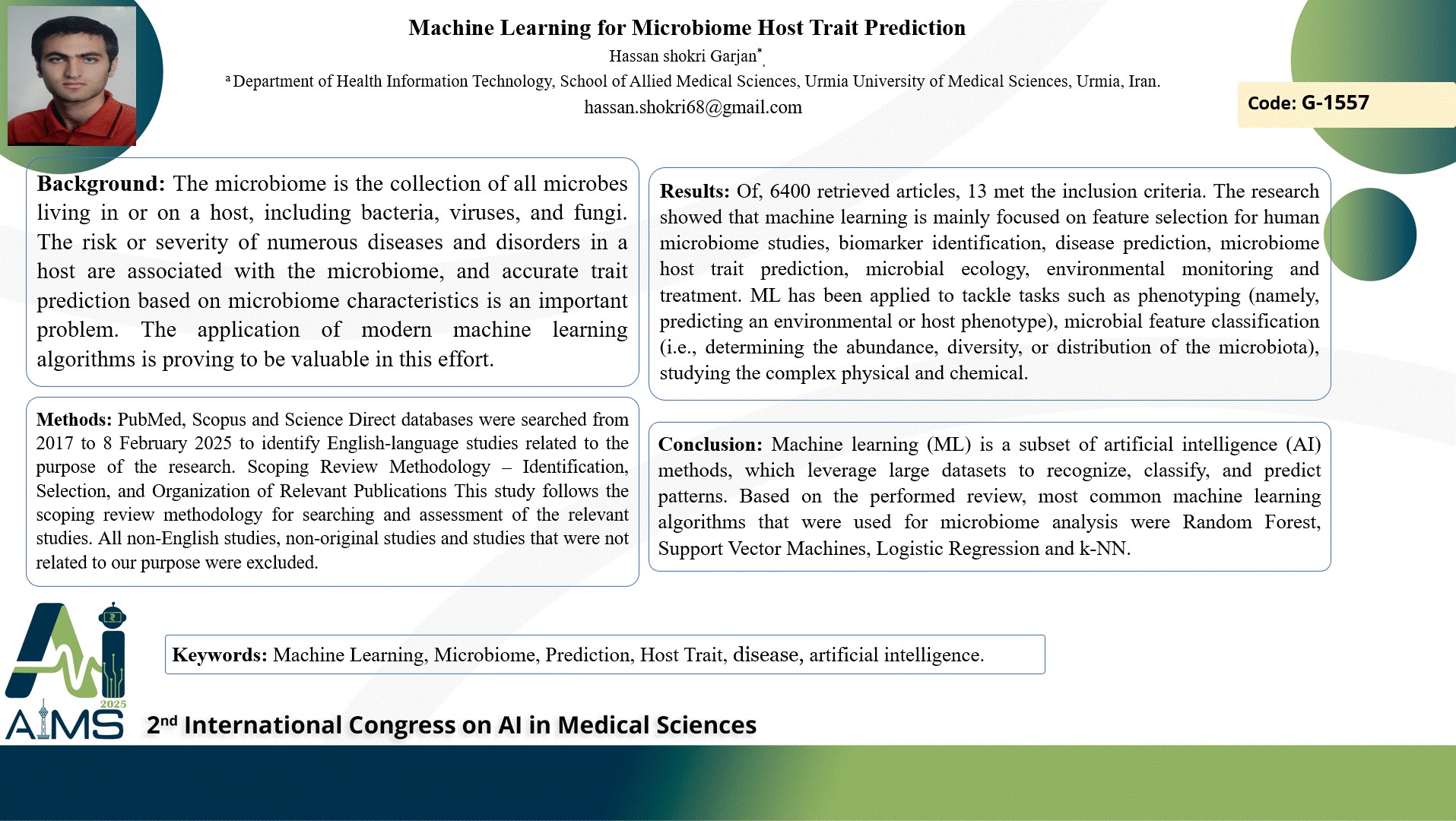یادگیری ماشین برای پیشبینی صفت میزبان میکروبیوم
کد: G-1557
نویسندگان: Hassan Shokri Garjan * ℗
زمان بندی: زمان بندی نشده!
برچسب: تشخیص و درمان سرطان
دانلود: دانلود پوستر
خلاصه مقاله:
خلاصه مقاله
Background: The microbiome is the collection of all microbes living in or on a host, including bacteria, viruses, and fungi. The risk or severity of numerous diseases and disorders in a host are associated with the microbiome, and accurate trait prediction based on microbiome characteristics is an important problem. The application of modern machine learning algorithms is proving to be valuable in this effort. Methods: PubMed, Scopus and Science Direct databases were searched from 2017 to 8 February 2025 to identify English-language studies related to the purpose of the research. Scoping Review Methodology – Identification, Selection, and Organization of Relevant Publications This study follows the scoping review methodology for searching and assessment of the relevant studies. All non-English studies, non-original studies and studies that were not related to our purpose were excluded. Results: Of, 6400 retrieved articles, 13 met the inclusion criteria. The research showed that machine learning is mainly focused on feature selection for human microbiome studies, biomarker identification, disease prediction, microbiome host trait prediction, microbial ecology, environmental monitoring and treatment. ML has been applied to tackle tasks such as phenotyping (namely, predicting an environmental or host phenotype), microbial feature classification (i.e., determining the abundance, diversity, or distribution of the microbiota), studying the complex physical and chemical. Conclusion: Machine learning (ML) is a subset of artificial intelligence (AI) methods, which leverage large datasets to recognize, classify, and predict patterns. Based on the performed review, most common machine learning algorithms that were used for microbiome analysis were Random Forest, Support Vector Machines, Logistic Regression and k-NN.
کلمات کلیدی
Machine Learning, Microbiome, Prediction, Host Trait.
